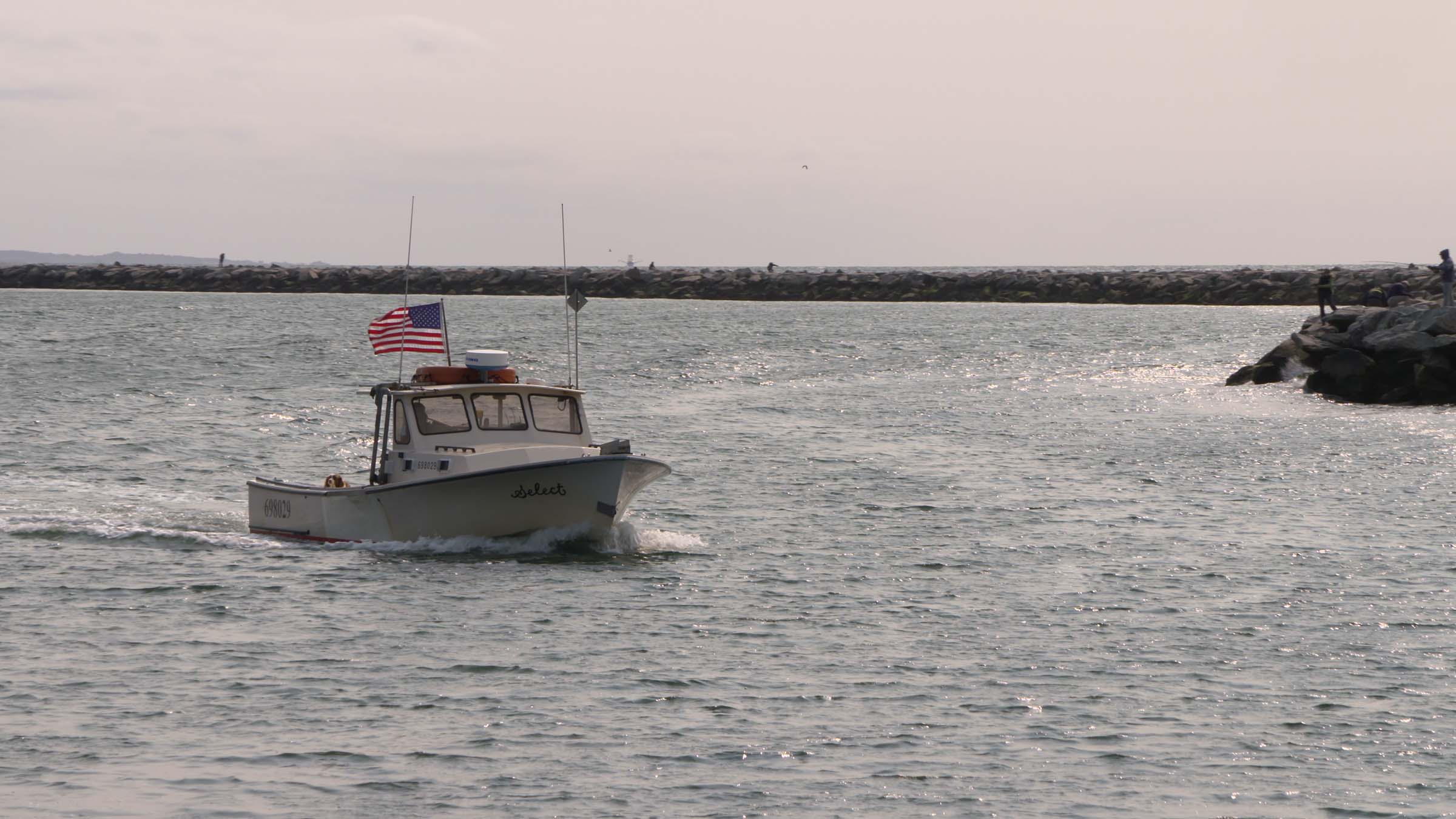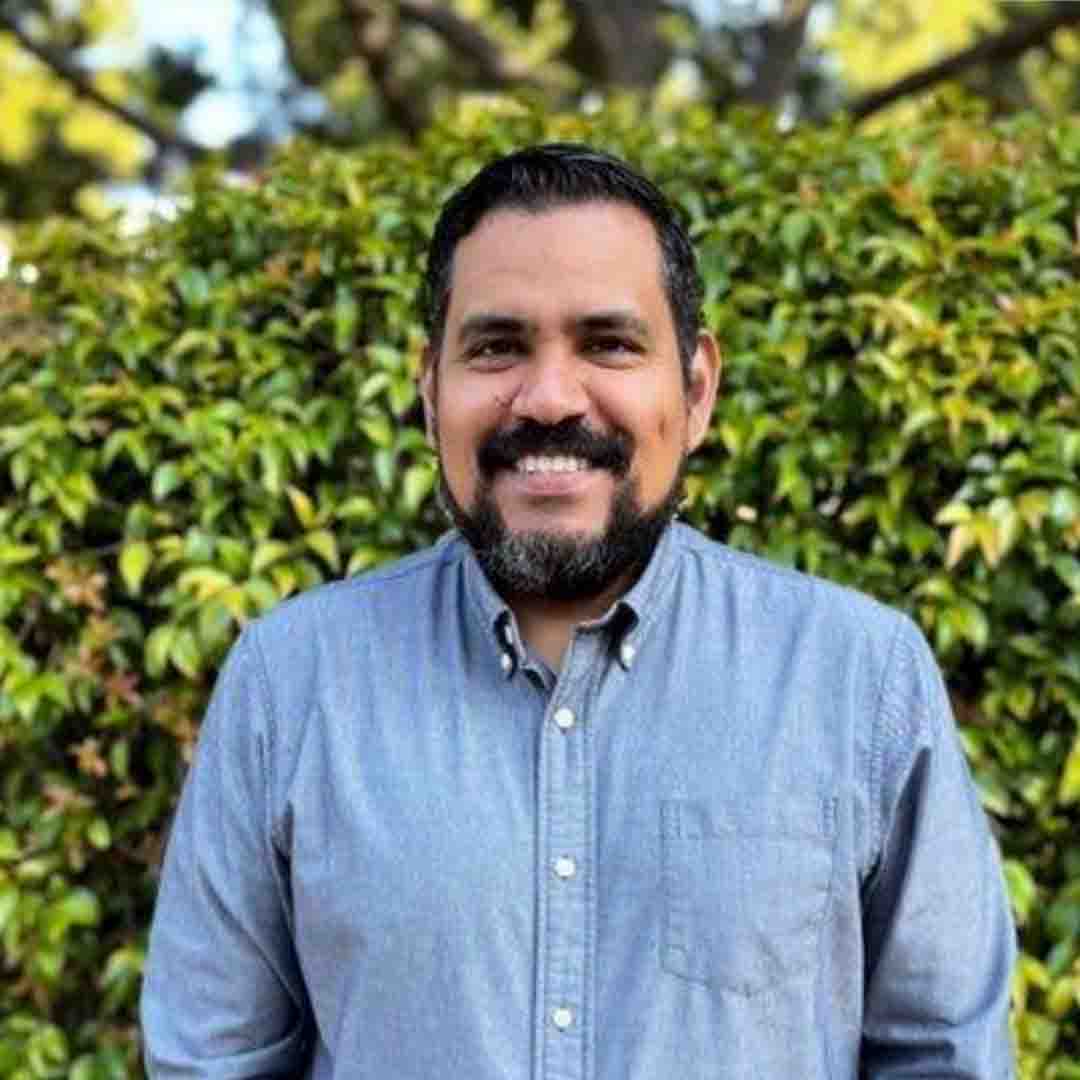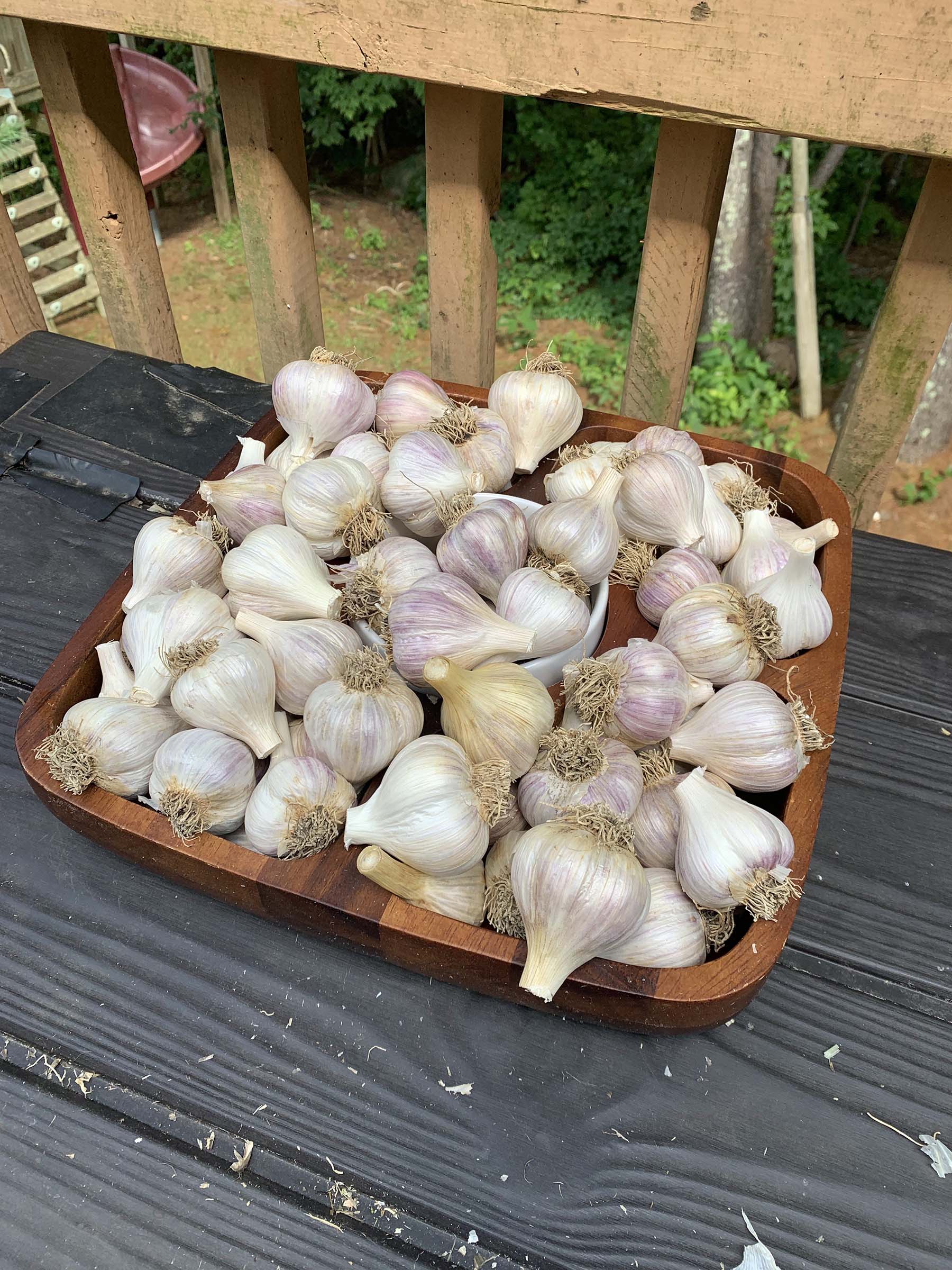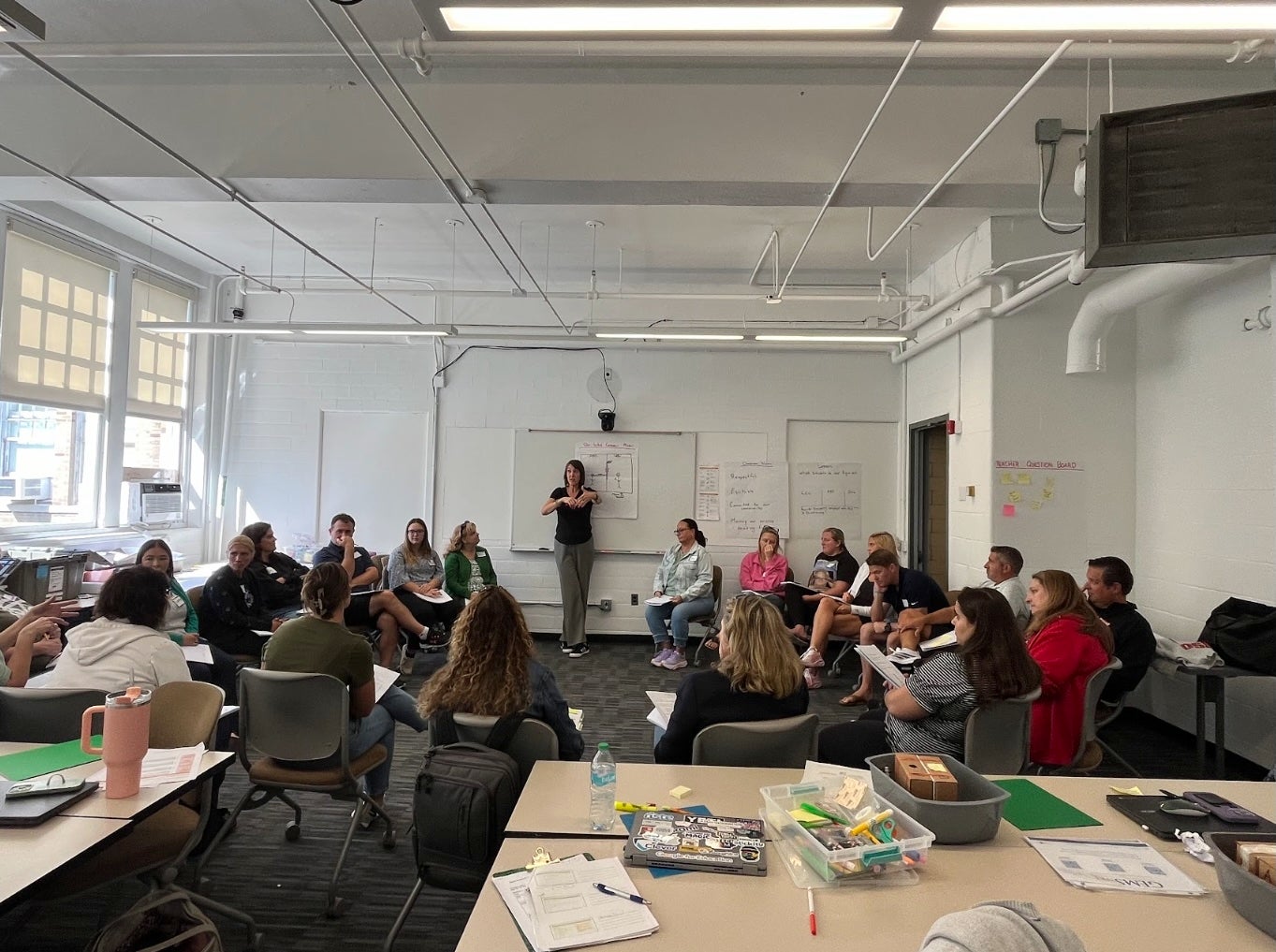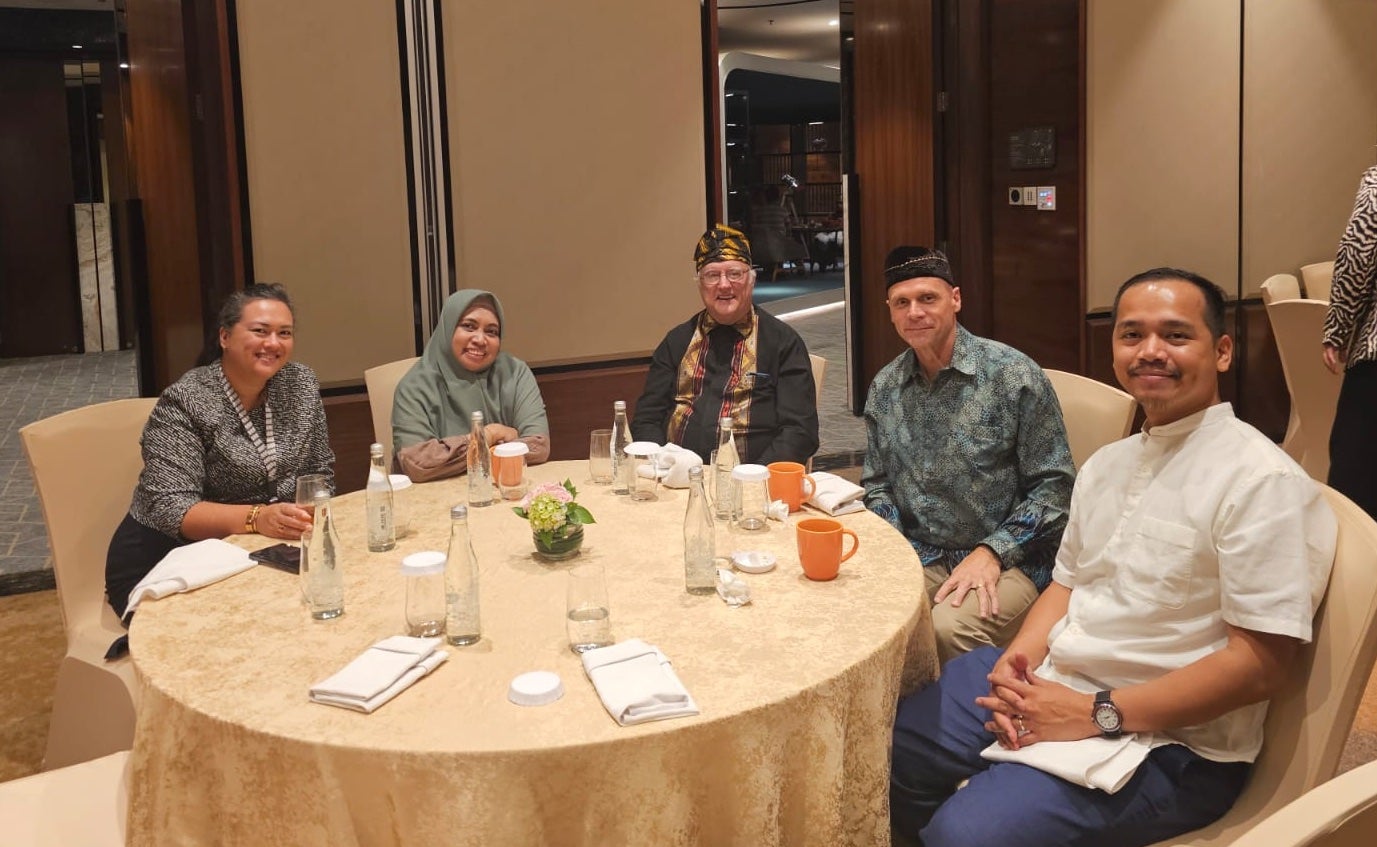URI part of finalist team selected by National Science Foundation in Regional Innovation Engines competition
KINGSTON, R.I. – Oct. 17, 2025 – Aquaculture/Fisheries Professor Marta Gomez-Chiarri is leading efforts at the University of Rhode Island to help position New England as a national leader in the seafood industry, hoping to secure final funding through the National Science Foundation’s (NSF) Regional Innovation Engines program. URI joins a consortium of regional partners, collectively known as NSPIRE, selected as finalists in the national competition.
Gomez-Chiarri, in URI’s Fisheries, Animal and Veterinary Sciences Department, is the lead faculty member on the finalist team in a competitive process which began with almost 300 letters of intent and is now down to just 15 finalists. She’ll work closely with principal investigator Jake Kritzer at Northeastern Regional Association of Coastal Ocean Observing Systems (NERACOOS) and a large team of senior investigators from several partner institutions.

“Hearing we were picked as finalists was extremely rewarding,” she says. “It validated all the hard work that our team put into this proposal.”
“I commend URI for being selected to move forward in NSF’s Regional Innovation Engines program. Rhode Island is a leader when it comes to our sustainable aquaculture and seafood harvesters, and this funding will help Ocean State researchers better support our local fishermen and shellfishermen and support resilient growth of this industry across our region,” says U.S. Senator Jack Reed, a member of the Senate Appropriations Committee who has delivered millions of dollars in federal investments for Rhode Island’s aquaculture and seafood industries and research.

“Fishing and aquaculture are pillars of Rhode Island’s Blue Economy, so it’s fitting that our state’s flagship university is leading cutting-edge research into growing the domestic seafood industry,” says U.S. Senator Sheldon Whitehouse. “Well done to the team at URI for making it this far, and best of luck in the final round of the National Science Foundation’s Regional Innovation Engines program.”
Each NSF Engine is powered by a broad coalition of private sector, scientific leaders, entrepreneurs and organizations to accelerate breakthrough emerging technology research and development (R&D) that drives growth and bolsters U.S. economic competitiveness and national security. To date, the NSF Engines program has seen a tenfold return on taxpayers’ dollars — an initial investment of $135 million across nine NSF Engines has garnered more than $1 billion in matching commitments from private industry, philanthropy, and state and local governments.

“This proposal builds upon such a strong regional collaboration between nonprofit organizations, academic institutions and industry, and by integrating innovation with our seafood industries’ needs, it will build a sustainable ecosystem in this sector for years to come. The success of being selected as a finalist was due to sustained and enduring commitment to this collaboration by so many people and leverages URI’s strengths,” says Bethany Jenkins, vice president for research and economic development at URI.
“Our team is excited to highlight the strong participation of many partners from the seafood system in New England,” Gomez-Chiarri adds, “and share how we can use the tremendous potential of new technologies developed by our academic institutions and the rapidly growing Blue Tech sector in New England not just for defense applications, but to help one of the oldest industries in the U.S.”
An NSPIRED partnership
NSPIRE, The New England Seafood Partnership for Innovations, Research and Engagement, is a consortium of more than 50 partner organizations from across Rhode Island and three other New England states. If the proposal is selected, the NSF would distribute up to $160 million to support technological innovation, workforce development, and sustainability in the seafood industry across Rhode Island, Massachusetts, Maine and New Hampshire.
While New England is a cornerstone of America’s seafood industry, the industry faces economic, environmental, and policy challenges that have contributed to a $20 billion national seafood deficit. With our regional seafood industry at a crossroads, the Engines program could boost America’s competitiveness, unlock innovation in New England, and drive the industry forward.
Gomez-Chiarri is uniquely poised to rally local partners to showcase seafood as an engine for growth in the region.
Gomez-Chiarri grew up on the other side of the Atlantic coast, in a fishing town right above Portugal, a region that shares a similar strong connection to the sea, and says the New England mindset reminds her of home. She joined URI in 1997, coming from the West Coast and a background in biotechnology and aquaculture.
At URI, she has served in leadership roles in Aquaculture and Fisheries and Sustainable Agriculture and Food Systems and the Department of Fisheries, Animal, and Veterinary Sciences. She directs URI’s Biological and Environmental Sciences graduate program, is involved in a number of regional efforts around sustainable seafood and partnerships, and also coordinates the Partnership for Research Excellence in Sustainable Seafood, with a track record of helping the local aquaculture and fishing industries with funding from NOAA and the USDA.
Now, Gomez-Chiarri is joining efforts to help New England maintain its revolutionary spirit in today’s global seafood market, reducing the pressing seafood deficit by increasing independence from foreign competitors and reshoring American manufacturing and seafood processing to boost local economies and create jobs, as part of Restoring American Seafood Competitiveness.
Gomez-Chiarri says that New England’s small size and dense network is an asset for this kind of regional cooperation, because people here already think and operate regionally, across state lines, with many elements already in place for an integrated regional seafood economy. Strong regional coordination and cohesion, something that comes naturally in this dense corner of the country with its small, connected states, would be an asset for the success of the Engines program if selected.
“Our small size helps in fostering collaborations, but the main advantage of the coastal New England region is the shared history and culture found here, which has a strong connection to the sea and seafood,” she says.
Driving regional innovation
NSPIRE can confront challenges faced by New England’s seafood industry by mobilizing the region’s expanding, world-leading tech sector to break through bottlenecks across the seafood supply chain. Technological innovation through NSPIRE can bring unprecedented levels of boat-to-plate and industry-to-science collaboration to increase the volume, quality, consistency, variety, and value of seafood products in New England and across the U.S.
Building NSPIRE into an NSF Engine would enable the vibrant partnerships and innovations at its core to expand and mesh into a dynamic ecosystem.
The NERACOOS led-team will find out in 2026 if they will be selected as an NSF Engine. Selection would also help New England as a region face changes in its seafood sector, helping the nation’s oldest industry adapt to new challenges. Success as an NSF Engine would enable more than a next step: it would position New England’s seafood industry for a giant leap in technological modernization, job creation, workforce development, and economic competitiveness, ensuring market competitiveness, technological innovation, and advancing environmental intelligence.
Hoping to pass the next hurdle, Gomez-Chiarri will coordinate an interdisciplinary team focused on the aquaculture industry. She’ll call on colleagues at URI, including Andrew Davies, Brennan Phillips and Coleen Suckling, to help develop and implement an Aquaculture Environmental Intelligence Network, and also work with the Commercial Fisheries Research Foundation and Commercial Fisheries Center of Rhode Island, Rhode Island Commerce’s Ocean Tech Hub, 401 Tech Bridge, and the Matunuck Shellfish Hatchery Research and Innovation Center. Rhode Island Sea Grant Director Tracey Dalton and the Rhode Island Sea Grant team will also coordinate inclusive engagement activities with partners across NSPIRE. In addition, Gomez-Chiarri and colleagues will collaborate with members of the Mashpee Wampanoag Tribe on a similar use-inspired R&D pilot focused on the Tribe’s First Light Shellfish Farm.
Securing the NSF funding would be a major accomplishment not only for URI and Rhode Island, but for New England as a whole — and the URI team is putting the resources and mindset of URI’s “Think Big, We Do” motto fully behind the effort.
“Another important component to New England is the spirit of exploration found here,” she says. “That’s exemplified by the work of our institutions with a long tradition in ocean exploration and innovation.”
To learn more about NSPIRE, the New England Seafood Partnership for Innovations, Research and Engagement, visit https://seafoodengine.org/.
Latest All News
- URI Gender and Women’s Studies department to hold annual Roundtable for Black Feminist and Womanist Theory Nov. 6-8KINGSTON, R.I. – Oct. 22, 2025 – A new book on the famed African American abolitionist / writer Harriet Jacobs and the weaponization of Black feminism in academia are just two of the topics on the roster at the University of Rhode Island’s sixth annual Roundtable for Black Feminist and Womanist Theory. The three-day conference, led […]
- Community colleges the topic at Oct. 28 Honors ColloquiumKINGSTON, R.I. – Oct. 21, 2025 – Community colleges are often celebrated as engines of access and mobility. But behind the institutional curtains lie a more complicated story. In his talk at the University of Rhode Island’s 2025 Honors Colloquium, Eric Felix will share insights from a three-year research-practice partnership with equity leaders across 20 […]
- Seattle nursing dean, patient care expert to deliver URI College of Nursing’s Fall Distinguished LectureKINGSTON, R.I. — Oct. 21, 2025 — Kristen Swanson, dean and professor emerita at the Seattle University College of Nursing, will discuss “Caring—The Difference that Makes a Difference: From Discovery to Randomized Trials and Clinical Translation,” as part of the University of Rhode Island College of Nursing’s Fall Distinguished Lecture series. The lecture, scheduled for Thursday, […]
- Spooky suggestion: Get your garlic in the ground for Halloween!KINGSTON, R.I. – Oct. 21, 2025 – While gardeners across the region are closing up shop and putting away their gardening tools, University of Rhode Island Cooperative Extension Master Gardeners say fall is a great time of year to get some plants into the ground and plan for next year. Cooperative Extension’s Kate Hardesty, of […]
- Science teacher education program celebrating 30 years and new campus location with open house Oct. 29KINGSTON, R.I. – Oct. 20, 2025 – Teachers by nature are used to being on the move. But this fall, the office for one of the state’s premiere teacher professional learning programs has relocated from the University of Rhode Island’s Narragansett Bay Campus to its Kingston Campus. After building a strong foundation at the University’s […]
- A Rhode Island fisheries model for Asia-Pacific nationsKINGSTON, R.I. – Oct. 20, 2025 – Last month, a Rhode Island team of experts traveled to Indonesia to collaborate with representatives from Southeast Asian countries on sustainable fishery management. University of Rhode Island professor Michael A. Rice; Jason McNamee, Ph.D. ’18, deputy director of the Rhode Island Department of Environmental Management (DEM); and Maria […]



